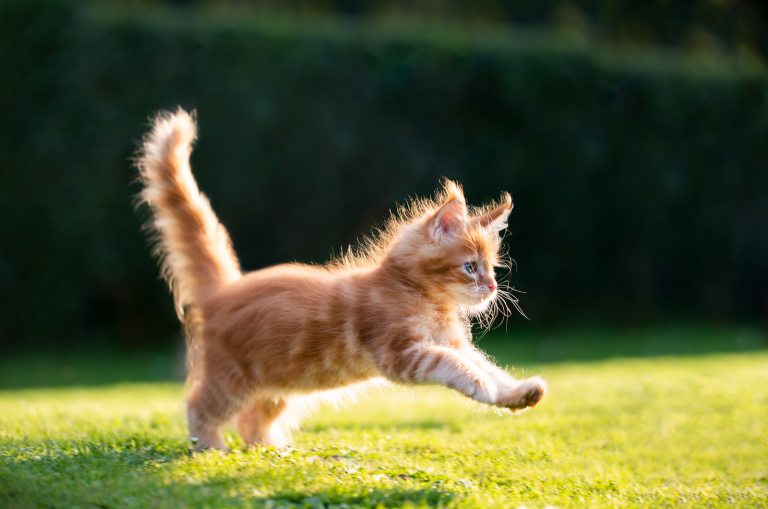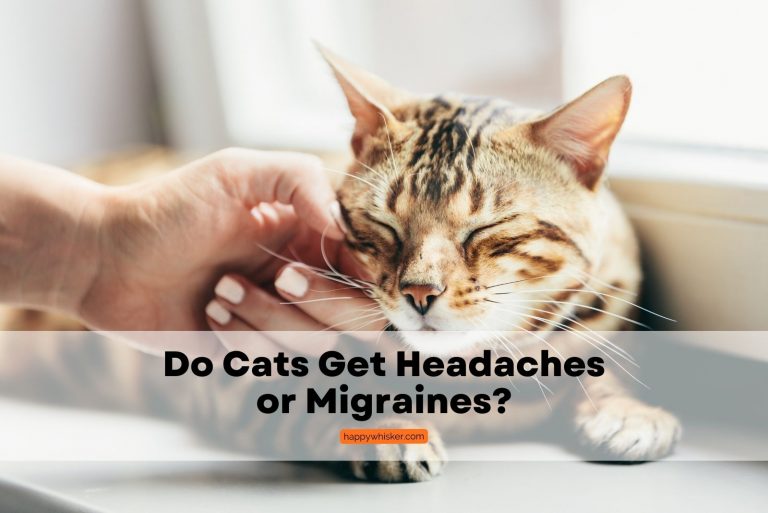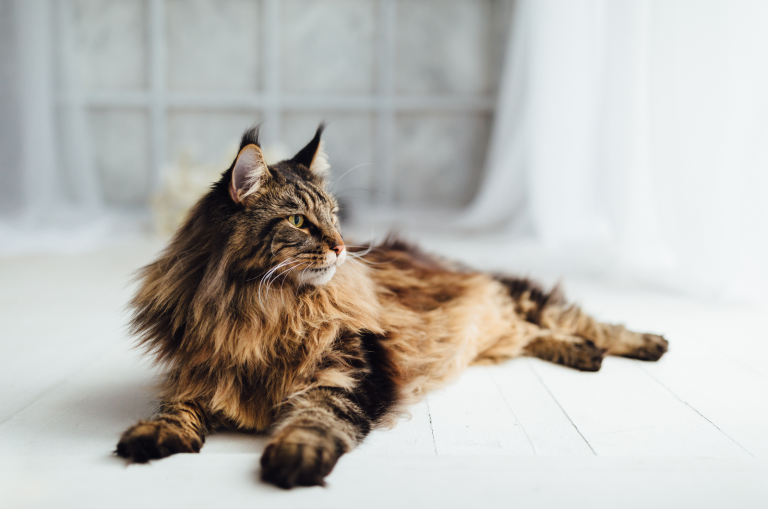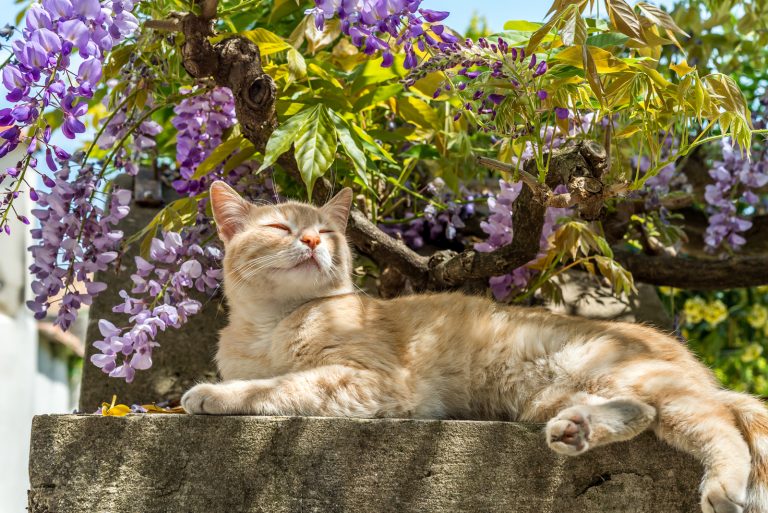Why Are My Cat’s Lymph Nodes Swollen? 7 Potential Reasons
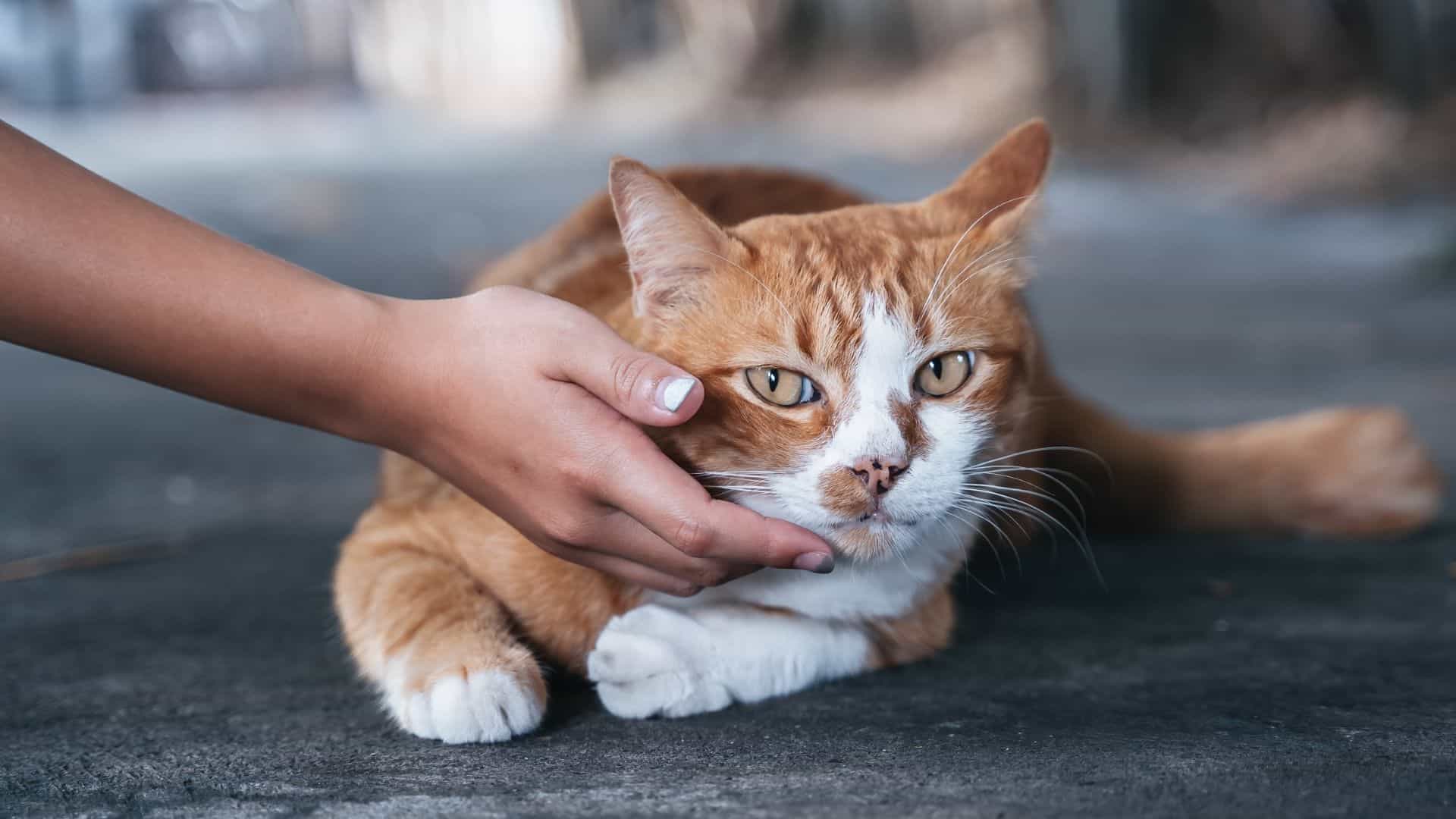
Lymph nodes are part of the lymphatic system and help to filter out bacteria, viruses, and other potentially harmful substances from the body.
Sometimes, they can become swollen, and you might be left wondering, Why are my cat’s lymph nodes swollen? Should I be worried?
Lymph node inflammation is more common than you might think, and I have a lot of feline patients coming in with this health issue.
In this article, I will explain the potential cause of lymph inflammation, how it’s treated, and whether you should rush to the vet.
Why Are My Cat’s Lymph Nodes Swollen?
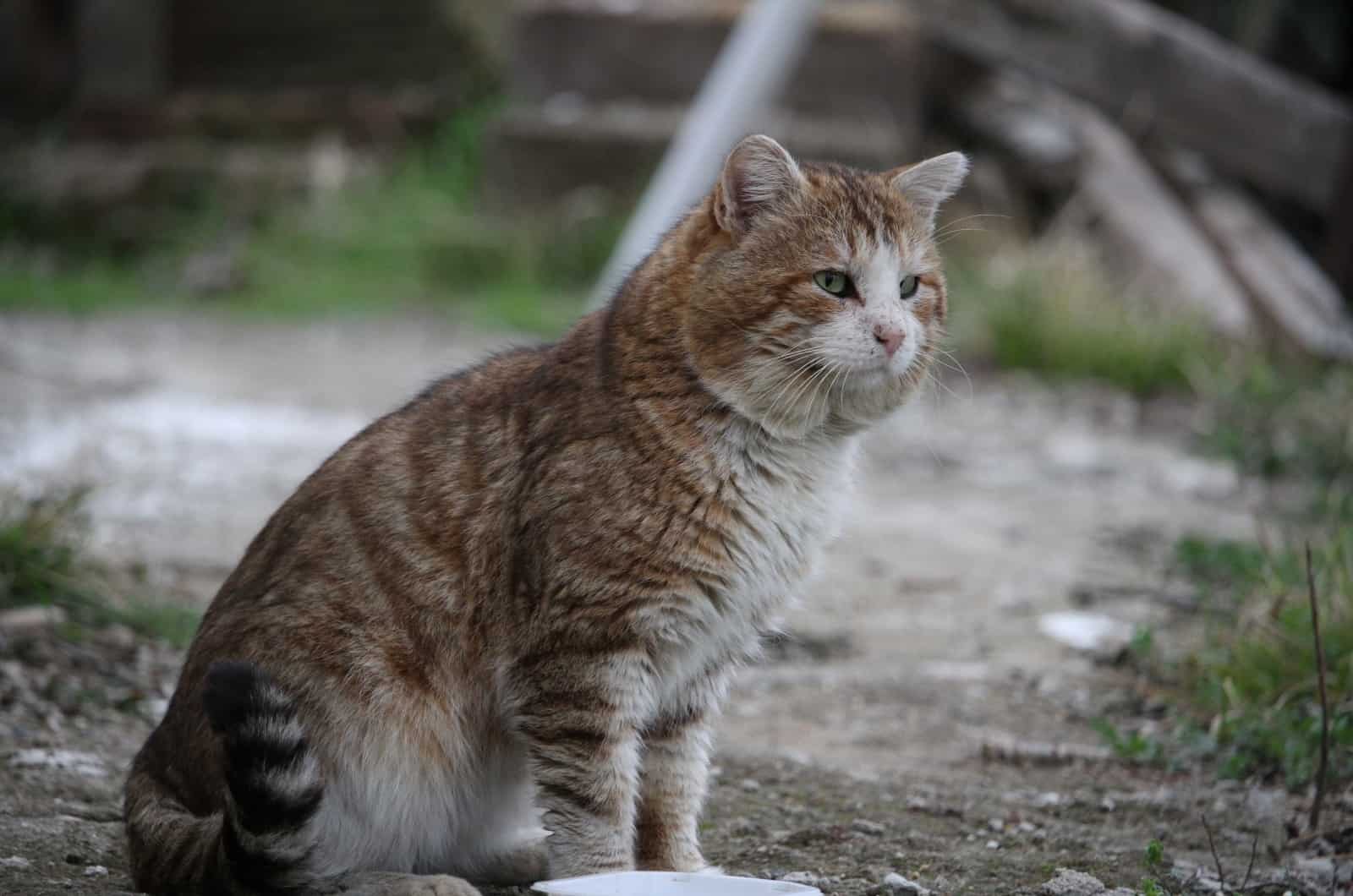
Feline lymph node swelling is most likely caused by a bacterial or viral infection, although there are other causes.
The lymph nodes may be visible in some cases, as swollen lumps under the skin, and your cat might be experiencing pain at the location of the lymph node, fever, loss of appetite, and weight loss.
Various factors can cause lymph node inflammation, so let’s review the most common ones and how they’re treated.
Causes & Treatment Of Enlarged Lymph Nodes In Cats
Before we start, let me just point out the difference between the terms you’ll likely see when researching swollen lymph nodes in cats.
In general, lymphadenopathy and lymphadenitis both involve the enlargement of the lymph nodes.
However, lymphadenitis specifically refers to inflammation of the lymph nodes. At the same time, lymphadenopathy is a broader term that can refer to any enlargement of the lymph nodes, regardless of the underlying cause.
Now that we’ve got that cleared up, let’s start!
1. Bacterial Infection
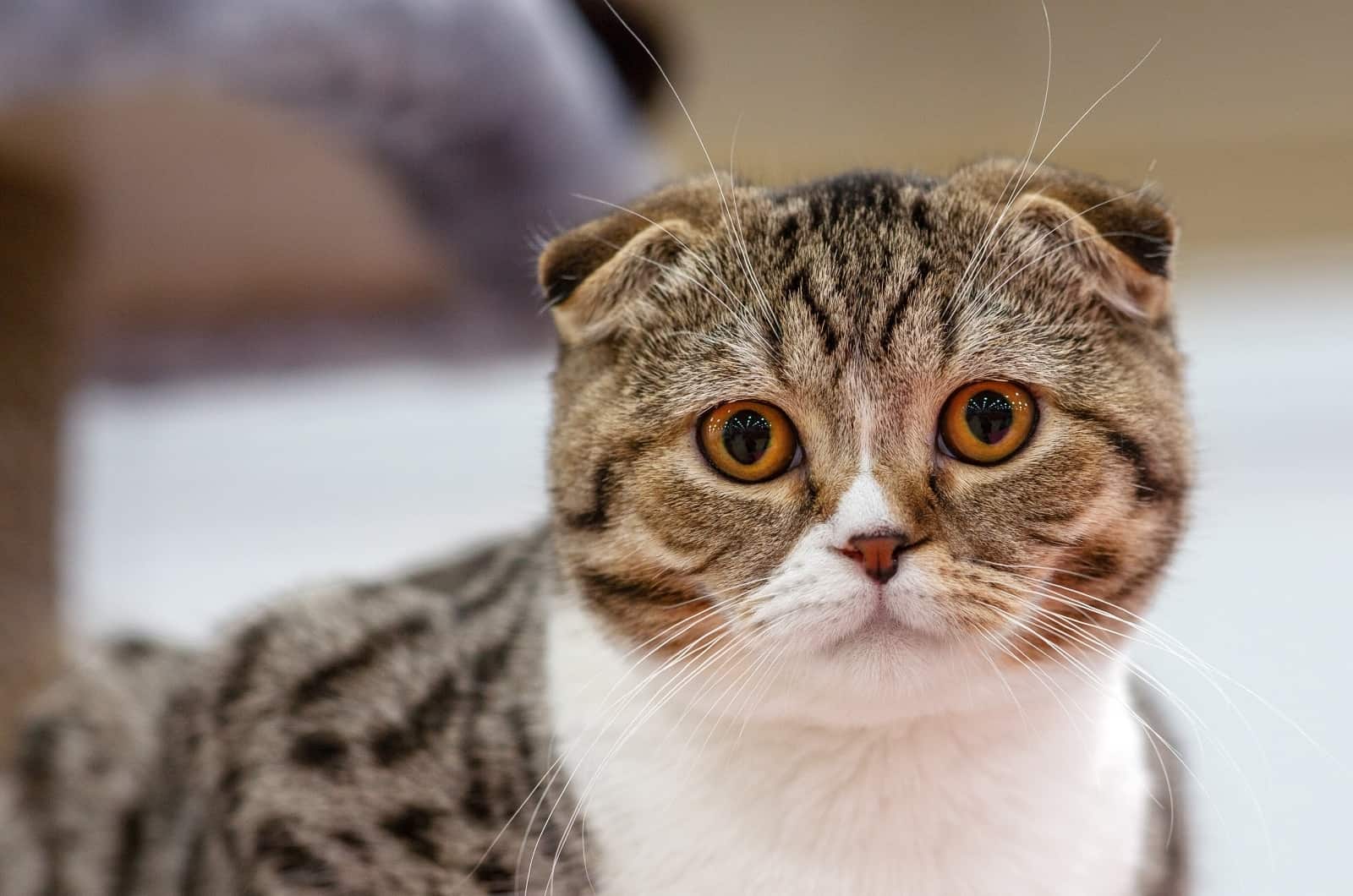
Various bacterial infections can cause lymph node enlargement in cats. Some of the bacteria that can cause lymph node enlargement in cats include:
• Staphylococcus: This type of bacteria is a common cause of skin infections and abscesses, which can lead to lymph node enlargement.
• Streptococcus: This type of bacteria is a common cause of respiratory infections and abscesses, which can also cause lymph node enlargement.
• Pasteurella: This type of bacteria is a common cause of abscesses, particularly in cats who have been bitten by another animal.
• Escherichia coli (E. coli): This type of bacteria is a common cause of urinary tract infections and gastrointestinal infections, which can lead to lymph node enlargement.
Treatment
Bacterial infections in cats can be treated with antibiotics.
The specific type of antibiotic and the length of treatment will depend on the type of bacteria causing the infection and the severity of the infection.
2. Viral Infection
A viral infection of the lymph nodes in cats is a common condition caused by various viruses.
The most common viral causes of lymph node infection in cats are feline leukemia virus (FeLV) and feline immunodeficiency virus (FIV), but other viruses, such as feline infectious peritonitis (FIP) and feline herpesvirus (FHV), can also cause lymph node infection.
Treatment
Treatment for a viral infection of the lymph nodes in cats will typically involve supportive care and antiviral medication. It may also include antibiotics if a secondary bacterial infection is present.
3. Fungal Infection
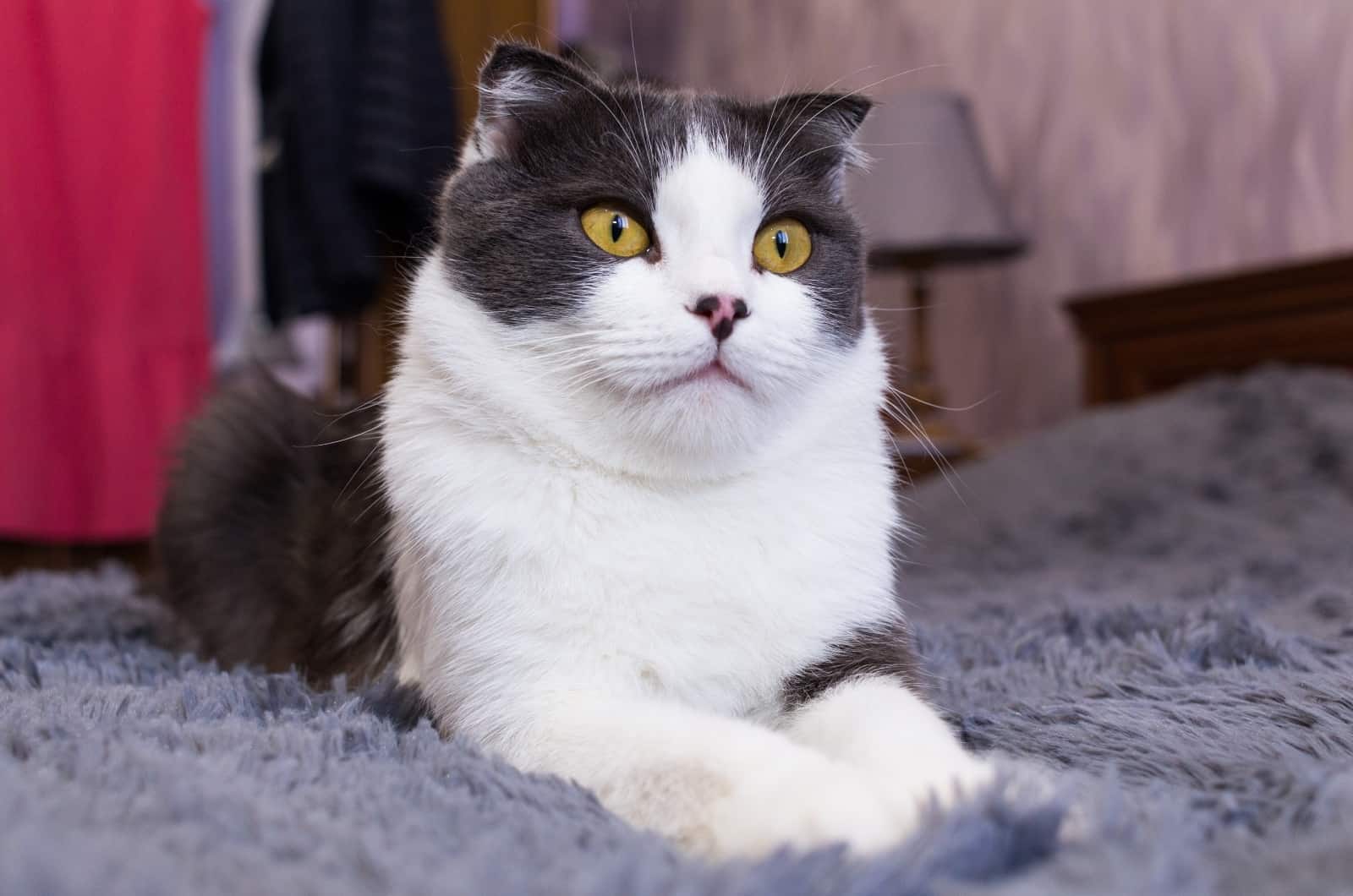
Fungal infections can cause the lymph nodes to become inflamed and enlarged. Some of the fungi that can cause lymph node inflammation in cats are:
• Ringworm
• Aspergillus
• Histoplasma
• Coccidioides
Treatment
If your cat is experiencing lymph node enlargement due to a fungal infection, it’s important to have them evaluated by a veterinarian.
The veterinarian can recommend the best course of treatment for your cat based on the diagnosis obtained. Treatment may include antifungal medications and supportive care to help your cat recover.
4. Allergies
Allergies are abnormal immune responses to substances that aren’t a threat to the body.
Pollen, grass, fungus, mold, and dust induce allergies. Additionally, your cat can be allergic to things like perfumes, flea bites, food proteins, and cleaning supplies.
Treatment
Treatment may include allergy medications, dietary changes, or other interventions to reduce the allergic reaction and help your cat recover.
Cat owners, It’s important to follow your veterinarian’s instructions and manage your cat’s allergies to prevent further episodes of lymph node enlargement.
5. Autoimmune Disease
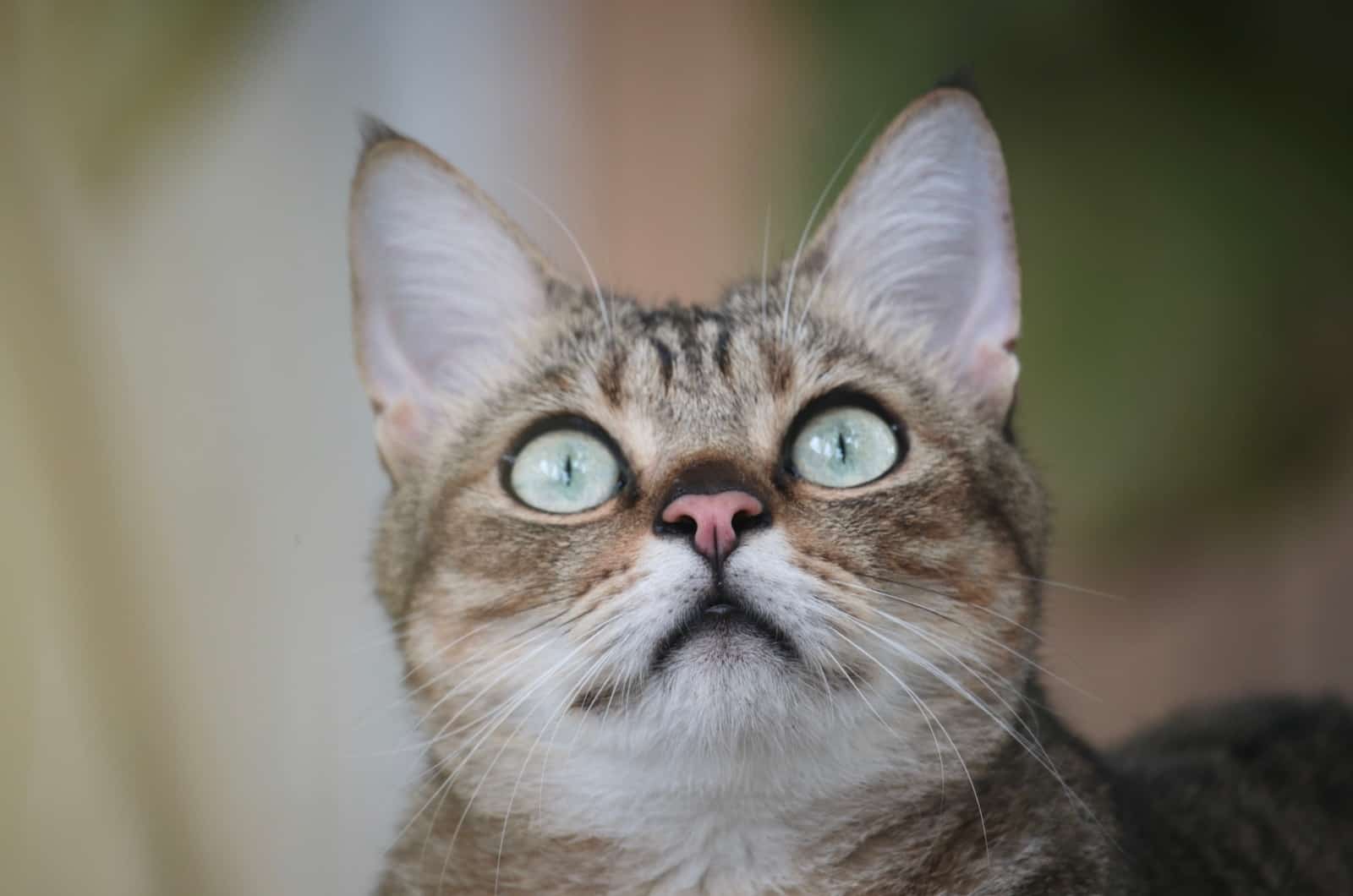
Autoimmune diseases are conditions in which the immune system mistakenly attacks the body’s tissues.
When the body’s immune system mistakenly attacks healthy cells, it can cause inflammation and swelling in the lymph nodes, which are part of the body’s immune system. This can lead to lymph node enlargement.
Treatment
Treatment of autoimmune diseases in cats typically involves using immunosuppressive drugs, which help reduce the activity of the immune system and reduce inflammation.
It’s essential to work closely with a veterinarian to determine the best treatment plan for your cat, as autoimmune diseases can be complex and require careful management.
6. Tumor And Cancer
In some cases, the enlargement of the lymph nodes may be due to a tumor or cancerous growth.
Tumors and cancer can cause the lymph nodes to enlarge by either directly invading the lymph nodes (a process known as metastasis) or releasing substances that stimulate the immune system and cause the lymph nodes to swell.
Lymphoma, a cancer of the lymphatic system, is a common cause of lymph node enlargement in cats. Other types of cancer, such as leukemia or skin cancer, can also cause lymph node enlargement.
Treatment
Treatment of lymph node tumors and cancers in cats will depend on the specific type and stage of the tumor or cancer.
Surgical removal of the affected lymph nodes may be recommended in some cases. Other treatment options may include chemotherapy, radiation therapy, or immunotherapy.
7. Reactive Hyperplasia
This swelling of a lymph node is caused by a reactive increase in white blood cells (hyperplasia) caused by the presence of an infectious pathogen in a limited area.
This is known as reactive hyperplasia, which occurs when white blood cells and plasma cells (antibody-secreting cells) increase in response to an antigenic stimulus, causing the lymph node to grow.
This condition is often seen in response to chronic infections, such as feline HIV. Still, other factors, such as bacterial infections, certain medications, or exposure to toxins, can also cause it.
Treatment
Treatment typically involves addressing the underlying cause of the condition and may include medications to suppress the immune system or antibiotics to treat any underlying infections.
What Can You Expect At The Vet’s Office?
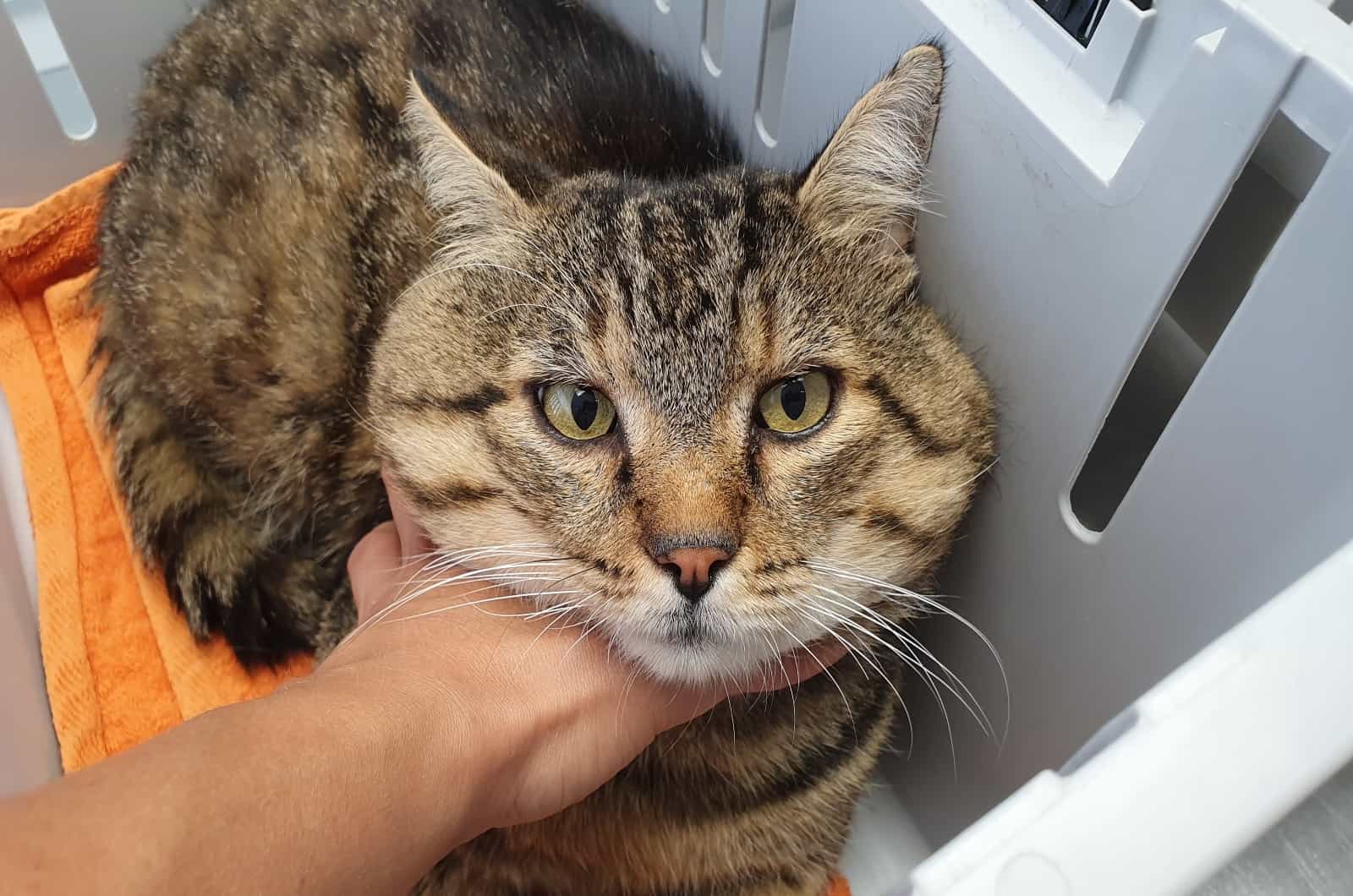
It’s important to have your cat evaluated by a veterinarian if you notice any changes in its lymph nodes. The veterinarian will be able to determine the best course of treatment for your cat based on the underlying cause of the lymph node inflammation.
To diagnose the cause of lymph node inflammation, a veterinarian will perform a physical examination and take a detailed history of the animal’s health.
This may be followed by additional diagnostic tests, such as blood work, urinalysis, X-rays, or ultrasound, to help determine the underlying cause of the inflammation.
Physical Exam
A physical exam is integral to the diagnostic process for enlarged lymph nodes. This will typically involve a thorough examination of the body, most notably, the locations of lymph nodes.
Often this will include:
• the submandibular (where the jaw meets the neck),
• the axillary (the region under the arm, in the armpit),
• the prescapular (the region in front of the shoulder blade, in the upper chest) and
• the popliteal area (the region behind the knee, in the back of the leg)
The veterinarian will look for any abnormalities or changes in the size or appearance of the lymph nodes.
In some cases, the physical exam alone may be sufficient to diagnose the underlying cause of the enlarged lymph nodes. Still, additional testing may be necessary to confirm the diagnosis and develop a treatment plan.
Blood Work
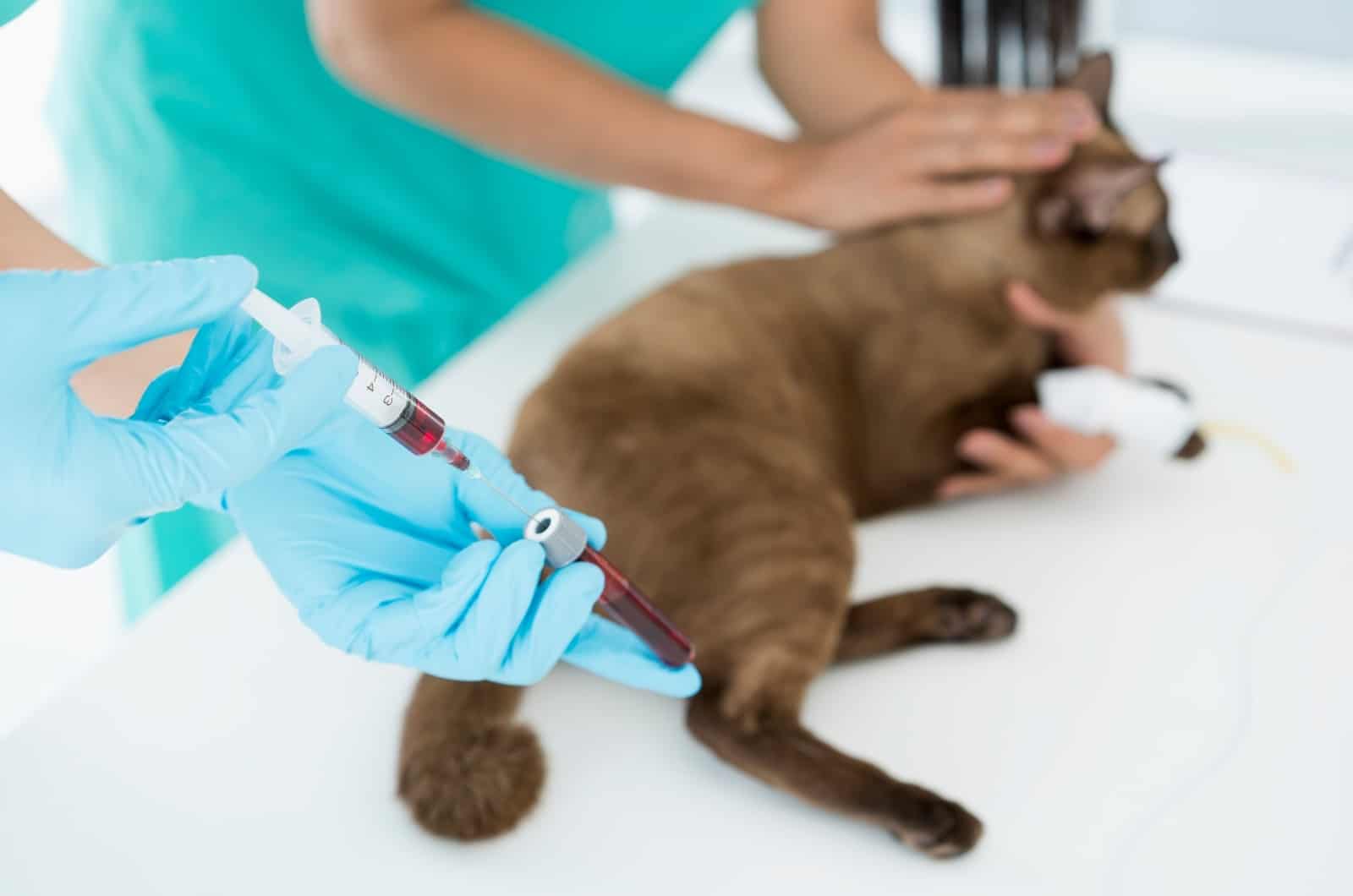
A complete blood count (CBC) is a common blood test that provides information about the different cells in the blood, such as white blood cells, as well as antibody levels.
A CBC can help diagnose a wide range of medical conditions, including infections, which are common causes of lymph node enlargement.
When the cat’s body is fighting an infection, the number of white blood cells (WBC) in the blood can increase to help the body fight the infection more effectively.
This increase in WBC count (most notably the lymphocyte immune cells count) will be observed in the blood work test results if your cat’s lymph node enlargement is due to a bacterial infection, for example.
Testing For The Presence Of A Virus
Sometimes, testing for feline viruses may be essential to the diagnostic process.
Feline viruses, such as feline leukemia virus (FeLV) and feline immunodeficiency virus (FIV), can cause lymph node enlargement and other symptoms.
Testing for these viruses can help determine if they are contributing to lymph node enlargement.
Ultrasound
Ultrasound is a commonly used diagnostic tool that can be helpful in the evaluation of lymph node enlargement.
It is often the preferred method for evaluating the lymph nodes because it is non-invasive, painless, and provides detailed images of the soft tissues.
X-Ray Analysis
X-rays are another diagnostic tool that can be helpful in the evaluation of lymph node enlargement.
X-rays use a small amount of ionizing radiation to produce images of the inside of the body. These images can be used to assess the lymph nodes’ size and shape, and look for any abnormalities or masses.
Biopsy
A biopsy is commonly used to diagnose the cause of lymph node enlargement.
A fine needle aspiration biopsy is a diagnostic technique that involves using a thin needle to remove a small sample of cells from a lymph node for examination under a microscope (a technique called cytologic examination).
A fine needle aspirate can be performed quickly and easily in a veterinarian’s office, providing valuable information about the underlying cause of lymph node enlargement.
A lymph node biopsy may reveal the presence of cancerous cells.
The Prognosis For A Cat Dealing With Enlarged Lymph Nodes
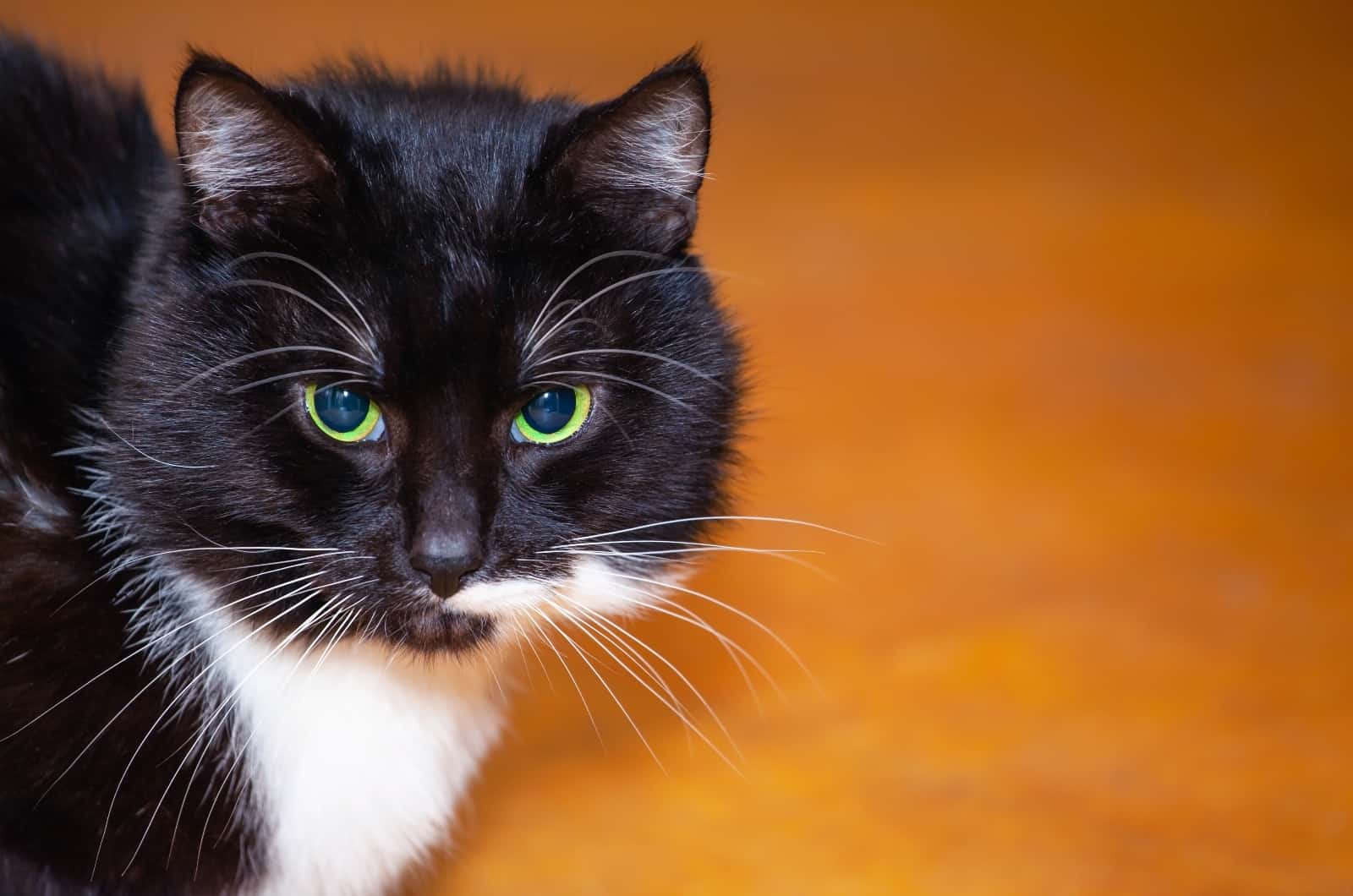
The prognosis for a cat with enlarged lymph nodes will depend on the underlying cause and the severity of the enlargement.
In some cases, treatment can successfully resolve lymph node enlargement and improve the cat’s overall health. In other cases, the underlying condition may be more serious, and the prognosis may be less favorable.
If the cause of the lymph node enlargement is an infection or an inflammatory disease, the prognosis is generally good with appropriate treatment.
In these cases, treatment may include antibiotics, anti-inflammatory medications, or other medications to address the underlying cause of the enlargement.
If the cause of the lymph node enlargement is cancer, the prognosis will depend on the specific type of cancer and the stage of the disease. In some cases, cancer can be treated successfully with surgery, chemotherapy, or other treatments.
However, in other cases, cancer may be more advanced, and the prognosis may be less favorable.
Your veterinarian will be able to provide more information about the specific prognosis for your cat based on the underlying cause of the lymph node enlargement and the results of diagnostic testing.
FAQ

Does A Cat’s Lymph Node Ever Swell Up?
Lymphadenitis, or lymph node inflammation, is a relatively common condition in cats. Various factors, including infections, autoimmune disorders, and cancer, can cause it.
How Can I Tell If My Cat Has A Swollen Lymph Node?
Clinical signs of swollen lymph nodes in cats are:
• tenderness and pain in the location where the lymph node is,
• visually observing the enlarged lymph node that appears as a lump under the skin,
• fever,
• loss of appetite, and
• weight loss.
Do I Need To Worry About My Cat’s Lymph Nodes?
If you notice any changes in your cat’s lymph nodes, such as swelling or lumps, a veterinarian must check your cat.
Lymph nodes play an important role in the immune system, and their normal size or changes in appearance can sometimes be a sign of an underlying health issue.
What Can I Give My Cat For Swollen Lymph Nodes?
Pet owners, giving your cat any type of medication without consulting the vet is not advised.
You shouldn’t guess the reason for your cat’s swollen lymph nodes and treat your cat yourself.
In most cases, the veterinarian will prescribe medications to help reduce the swelling and pain associated with the inflamed lymph nodes.
Does Enlarged Lymph Nodes Mean Cancer In Cats?
Not necessarily. While enlarged lymph nodes can be a sign of cancer in cats, many other potential causes of lymph node enlargement exist.
Infections, autoimmune disorders, and other medical conditions can also cause the lymph nodes to become enlarged
Does Lymphoma Always Cause Enlarged Lymph Nodes In Cats?
While lymphoma (cancer affecting the lymphatic system) is often associated with enlarged lymph nodes in cats, not all cats with lymphoma will experience this symptom.
Lymph node enlargement is just one potential sign of lymphoma; other symptoms can include weight loss, loss of appetite, and lethargy.
In Conclusion
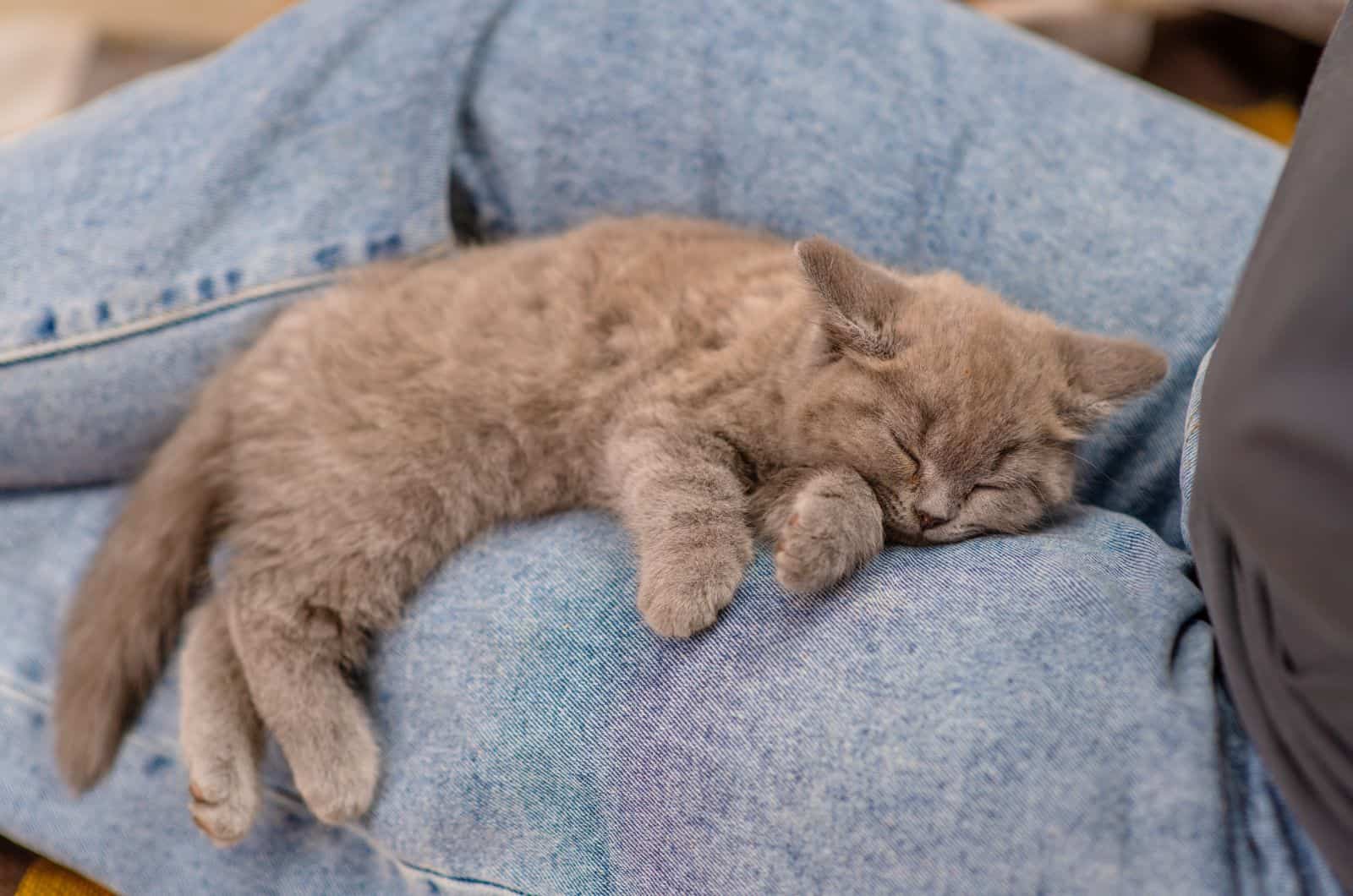
Are your cat’s lymph nodes swollen?
If your cat’s lymph nodes are swollen or tender to the touch, it is important to see a veterinarian for a proper diagnosis and treatment.
Only a veterinarian can determine the underlying cause of the swollen lymph nodes and recommend the appropriate treatment.
Please refrain from giving your cat any medication yourself. You can endanger your cat’s health doing so, even though you had the best intentions.
I’m sure your kitty will be perfectly healthy in no time!
Related Articles:
6 Possible Causes Of Cat Coughing With Tongue Out (Explained)
Why Is My Cat Drinking A Lot Of Water And Meowing? Possible Reasons

